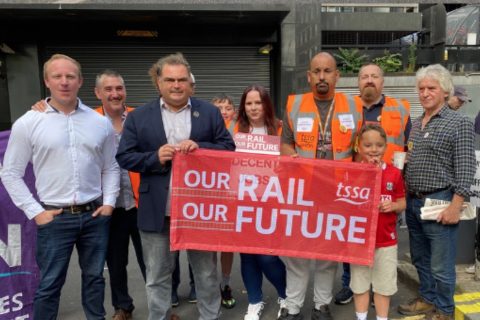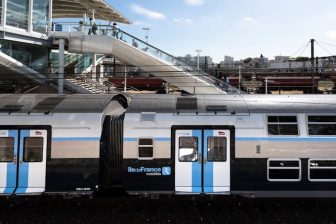
Surprise political casualty as new British rail strike announced
The state of industrial dispute that currently grips the British rail network has claimed a high-profile political casualty. Surprisingly – shockingly for some – the socialist opposition Labour Party sacked their shadow transport secretary Sam Tarry. The party said the politician had been sacked from his high-profile shadow cabinet role for making unauthorised media statements while standing on a picket line at London’s Euston station – pictured by TSSA in shirt sleeves along with jacketed TSSA general secretary Manual Cortes.
Want to read more?
You have read all of your free premium articles for this month. Please become a subscriber to keep reading.
Subscribe now!
Take advantage of our exclusive offer to get full access to all premium content.




Frustrations, Exit, etc. are symtoms.
For sustainably meeting with competition, from far away manufactured and forwarded, by cheapest, worst polluting ocean transports,
a decisive upgrading of railways since long, is requested!
(All other devices, by air and by sea, the road trucks, etc., upgrade – for high utilisation of assets, of staff, etc.)
A New Old Railway, a timely, robust and sustainable, now has to be constructed for!
(Regardless of Brexit, nearness, to and within Market is Goal!)